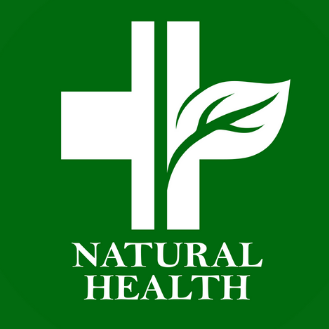Is Glutathione Right for You?
By: Meagan Clayton
Ever heard of glutathione? It’s not a name that rolls off the tongue, but this powerhouse compound plays a key role in keeping your body healthy, youthful, and ticking like a well-oiled machine. Often called the “master antioxidant,” glutathione works behind the scenes to protect your cells, boost your immune system, and keep harmful toxins at bay. Think of it as your body’s VIP protector!
Glutathione is naturally produced in your liver, but to call it just an antioxidant would be underselling its talents. It fights damaging free radicals, helps purge harmful toxins, and even aids in cell repair. The downside? Your body’s ability to produce this critical compound decreases over time due to age, environmental toxins, and even genetics. By age 40, production can drop by 30%! That’s where supplementation and innovative delivery methods come into play.
What is Glutathione and Why Does It Matter?
At its core, glutathione is a molecule made up of three amino acids: glutamic acid, cysteine, and glycine. It might sound simple, but this little molecule helps maintain balance in your cells by battling oxidative stress, a process that damages cells and accelerates aging. High levels of oxidative stress have been linked to a range of chronic diseases, including cancer, Alzheimer’s, and heart disease.
Glutathione doesn’t just stop there. It supercharges other antioxidants like vitamin C and E, prolonging their usefulness in the body. It’s like the ultimate team player on your cellular wellness squad.
The Unique Challenge of Glutathione
Here’s the catch. Glutathione isn’t something you can just load up on with a supplement and call it a day. When taken orally, it often gets broken down during digestion, which reduces its effectiveness and, unfortunately, adds to oxidative stress rather than alleviating it. That’s why medical professionals sometimes opt to administer it intravenously, bypassing the digestive system entirely—but at a steep price.
The good news? Recent scientific breakthroughs have made it easier to get the benefits of glutathione in a stable, bioavailable oral form by combining it with other protective antioxidants. These advancements mean you can now support your body with glutathione without expensive clinic visits.
Glutathione in Action
1. Fighting Free Radicals
Glutathione’s antioxidant properties are its claim to fame. Free radicals, those unstable molecules that can damage cells, are kept in check by glutathione. This process helps protect your DNA from harm, which is vital for preventing diseases like cancer, Parkinson’s, and Alzheimer’s.
2. Detoxifying Your Body
Your liver works overtime to remove harmful substances from your body, but it can’t do its job without sufficient glutathione. From pesticides and heavy metals to everyday toxins like alcohol, glutathione supports your liver in neutralizing these threats and flushing them out.
3. Boosting Immunity
Your immune system relies on a healthy supply of white blood cells to fend off infections, viruses, and harmful bacteria. Glutathione plays a key role in the production of these cells. It’s even been shown to activate natural killer cells, which are essential for fighting cancer.
4. Supporting Longevity
Glutathione helps preserve telomeres, the protective caps at the ends of your chromosomes that dictate how many times a cell can replicate before it breaks down. Longer telomeres are associated with a longer, healthier life.
Why Most People Need More Glutathione
With aging, toxin exposure, and genetic predisposition being everyday realities, many of us are running low on this crucial antioxidant. It’s estimated that one in three people has a genetic variant that reduces glutathione production by up to 50%. (1) Add to that the fact that by the time you reach 65, glutathione production can naturally drop by as much as 50% in healthy individuals.
And it’s not just age that’s a factor. Conditions like chronic stress, liver disease, autoimmune disorders, and even prolonged exposure to environmental toxins can drain your glutathione reserves. That’s why it’s so important to find ways to replenish and support your body’s ability to use glutathione effectively.
A Game-Changing Form of Glutathione
Not all glutathione supplements are effective, as regular unprotected forms are often broken down by digestion before your body can use them. However, a patented French process stabilizes glutathione during digestion, ensuring it reaches your cells in its active, powerful form. Studies have shown that this specific form improves the active-to-oxidized glutathione ratio significantly better than traditional options, increasing its effectiveness for improving health.
For example:
It boosts active glutathione levels 65% better than N-acetylcysteine (NAC), a common glutathione precursor.
It’s 230% more effective than standard unprotected glutathione.
Benefits can be observed in just 11 days with a lower daily dose of 450 mg compared to other lengthy and high-dose regimens.(2)
This rapid and efficient delivery makes it a standout choice for anyone looking to elevate their body’s antioxidant defense system.
Glutathione and Specific Health Conditions
Parkinson’s Disease
Research into Parkinson’s has shown that glutathione can help slow the progression of this debilitating condition. High oxidative stress in a specific part of the brain, the substantia nigra, contributes to the loss of dopamine production, a hallmark of Parkinson’s. Clinical studies have found that intravenous glutathione can significantly improve symptoms. While this method remains expensive, advancements in oral forms of glutathione are paving the way for wider accessibility.
Cancer
Glutathione protects your DNA from damage caused by free radicals, reducing the risk of mutations that can lead to cancer. It also supports detoxification, helping rid the body of carcinogens. Even during cancer treatments like chemotherapy, glutathione has been shown to protect nerve cells from damage.
Lyme Disease
Tick-borne Lyme disease depletes glutathione levels as your body fights to reduce damage caused by the bacteria. However, antibiotic treatments alone don’t help replenish this critical antioxidant. Incorporating oral glutathione can aid in reducing oxidative stress, protecting against further damage, and supporting recovery.
Rheumatoid Arthritis (RA)
RA’s inflamed and overactive immune response is often linked to oxidative stress and a depletion of glutathione. Studies show that individuals with RA have significantly reduced glutathione levels. Supplementing with glutathione helps combat oxidative damage, reduce inflammation markers, and support overall joint health.
Autism and Detox Support
People on the autism spectrum often struggle with impaired detoxification pathways. Boosting glutathione activity can be a game-changer, helping alleviate toxic burdens. Evidence from 39 studies indicates improving active glutathione ratios can support these pathways and potentially improve symptoms related to autism spectrum disorders.
Alzheimer’s Disease and Cognitive Decline
Oxidative stress is a significant factor in Alzheimer’s disease and mild cognitive impairment. Glutathione supplementation has been noted as a promising therapeutic strategy to slow the progression of these conditions. By supporting the brain’s defenses, glutathione helps protect cognitive function as we age.
HIV and Immune Challenges
People living with HIV often experience diminished immune system function. Research has shown that boosting glutathione levels helps restore some immune system activity, enabling it to better control secondary infections, such as tuberculosis.
Medications That Can Deplete Glutathione
Chronic medication use can also lower your glutathione levels. For instance:
Acetaminophen (Tylenol) is the leading cause of acute liver failure in the U.S., and treating an overdose requires intravenous glutathione.
Certain anti-seizure medications, antidepressants, and birth control pills have been linked to glutathione depletion.
If you’re reliant on medications that lower your glutathione levels, supplementation is an essential step to maintaining your health.
Why You Can’t Live Without Glutathione
Glutathione is so vital that your body will go to extreme lengths to produce it. If you fast for 24 hours, your liver will rob amino acids from your muscles to ensure it doesn’t run low. It’s that critical to survival.
While there’s no magical fountain of youth, healthy glutathione levels help you live a longer, healthier, and more vibrant life. By giving your body the right kind of glutathione, you can safeguard yourself against aging, disease, and environmental toxins.
The Bottom Line
Glutathione is a powerhouse antioxidant that keeps your cells functioning optimally. With cutting-edge advancements in its stability and absorption, you can now access truly effective oral glutathione to support your health. From managing chronic conditions to promoting longevity, glutathione has the potential to change your health for the better. Trying this superior form of glutathione could be the upgrade you didn’t know you needed.
Minich DM, Brown BI. A Review of Dietary (Phyto)Nutrients for Glutathione Support. Nutrients. 2019 Sep 3;11(9):2073. doi: 10.3390/nu11092073. PMID: 31484368; PMCID: PMC6770193.
Schmitt B, Vicenzi M, Garrel C, Denis FM. Effects of N-acetylcysteine, oral glutathione (GSH) and a novel sublingual form of GSH on oxidative stress markers: A comparative crossover study. Redox Biol. 2015 Dec;6:198-205. doi: 10.1016/j.redox.2015.07.012. Epub 2015 Jul 29. PMID: 26262996; PMCID: PMC4536296.



